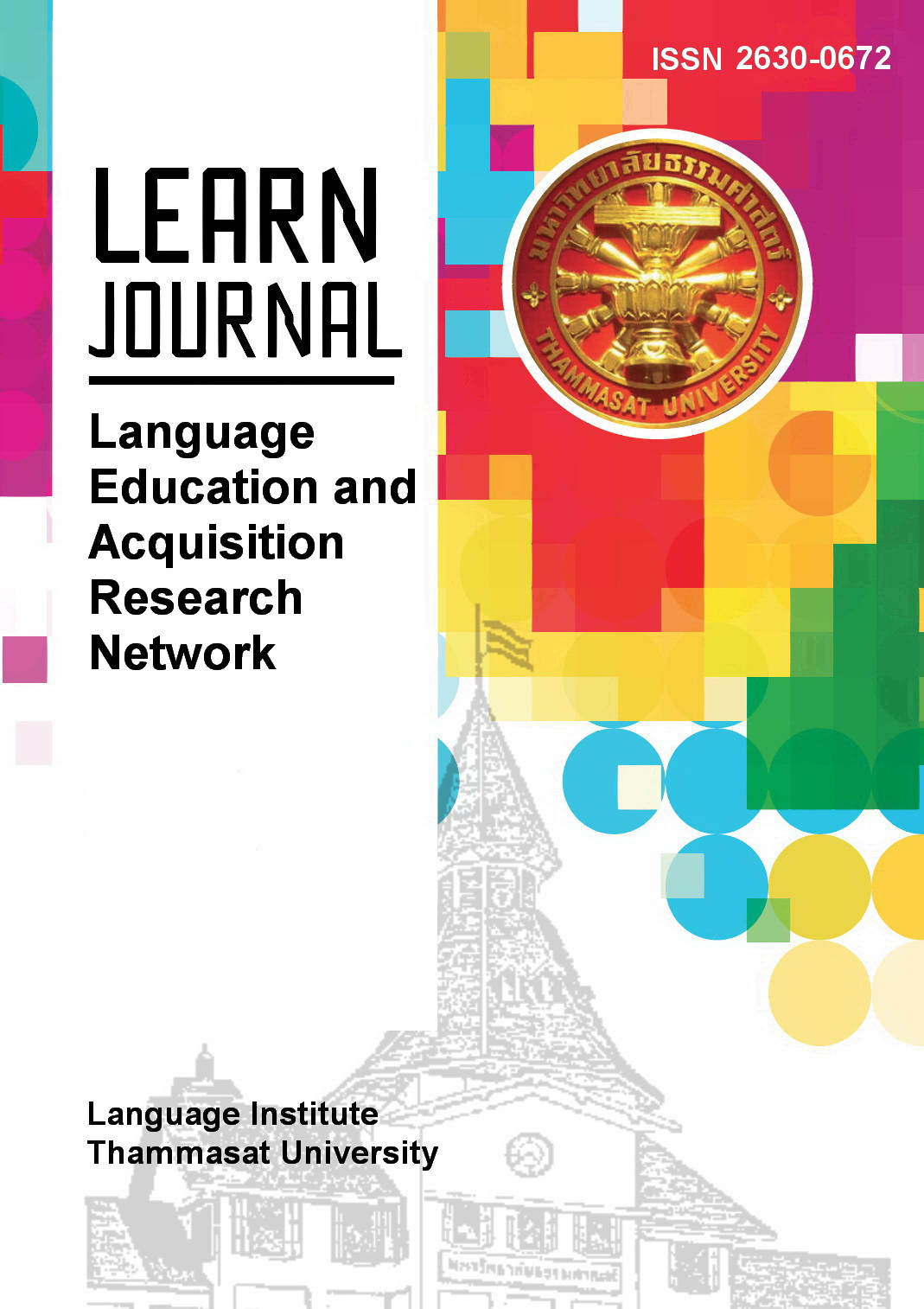Current and Future Faces of English: Examining Language Awareness of Thai and Turkish Student-teachers
Main Article Content
Abstract
This study examines student-teachers’ opinions about the spread of the English in general, and the ramifications of its spread as to its co-existence with other languages, speaker profiles, and probable extensions in form and function in two geographically different but English language policy-wise identical Expanding circle countries, i.e., Turkey and Thailand. The descriptive and qualitative analysis of the data collected through close-ended questionnaires and follow-up interviews demonstrated that most student-teachers believed in the possibility of co-existence of English with other languages in harmony, yet some students considered the future of English to be more complex and unpredictable due to the challenges posed by other dominant languages. Additionally, most students believed that the increasing number of non-native English speakers would impact the way English is used by speakers in non-Anglophone contexts in terms of forms and functions. The findings offer some implications as to the factors that contribute to student-teachers’ awareness about the critical issues around its spread and its impacts on various domains, particularly the domain of education, and how student-teachers may be helped to increase their awareness in teacher education programs through some courses on sociolinguistics and globalization of English.


